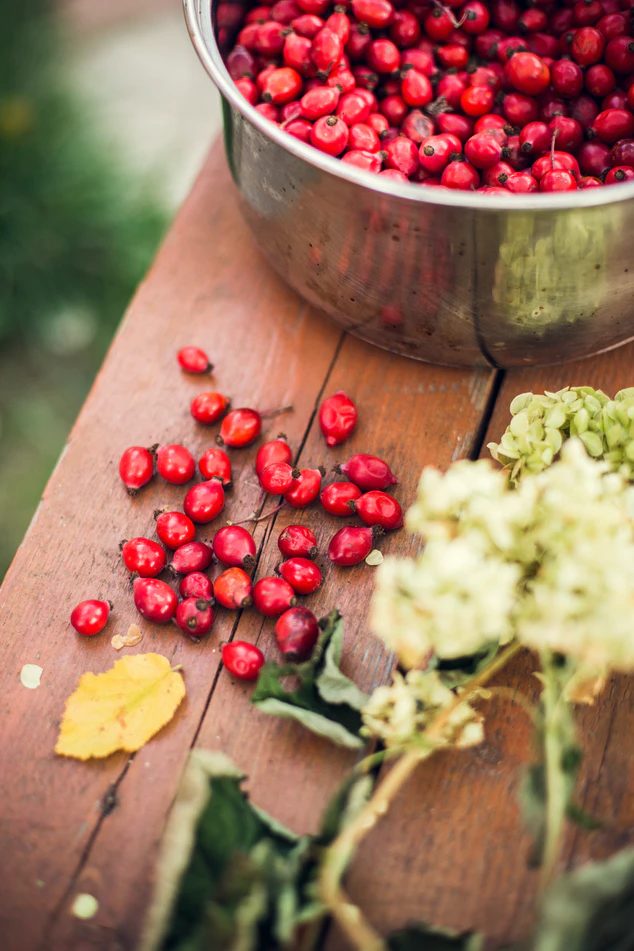
Does Cranberry Juice Help UTIs? Your Complete UTI Guide
July 5, 2021
Does cranberry juice help a UTI? UTIs – short for Urinary Tract Infections – are a common issue for women, and can be frustrating to deal with. They can also lead to other issues if they are not treated properly.
The first step in treating UTIs is prevention. In this functional nutrition article, we are delving into home remedies that you can use as a preventative for UTIs, including cranberry juice.
What is a UTI?
A UTI stands for urinary tract infection. It means that you have some bad-guy bacteria setting up shop in your urethra, the tube that goes from your bladder to the outside of your body.
With an infection, the bacteria can burrow into the wall of your urethra, and even travel further up into your bladder and even, more seriously, to your kidneys. No matter what: it doesn’t feel good. Let’s talk about symptoms next.
Symptoms of a bladder UTI
What does a UTI feel like? Symptoms of a UTI can vary from person to person and in intensity. Symptoms may include:
-
pain, pressure or tenderness in your lower abdomen that worsens when you urinate
-
urinating often with smaller amounts of urine each time
-
bloody or strong-smelling urine
-
fever and chills
These are a few symptoms, but if any persist or get worse, please contact your doctor for diagnosis!
Diagnosis of a UTI
How do you know for sure if you have a UTI? It requires a quick visit to your primary care doc or your gynecologist. You’ll pee in a cup and then they’ll send it away to the lab for testing. At the lab, they’ll culture the urine: this means seeing what grows.
Usually, urine doesn’t have any bacteria in it. If they’re able to grow bacteria from your urine, you have a UTI (1).
How do you get a UTI?
Where did this come from?
UTIs can be caused by a variety of factors, many of which can be managed once you realize what they are. Some include:
-
Sexual activity
-
Being dehydrated
-
Taking certain birth control medications
-
Wiping from back to front when using the bathroom
You’re also at greater risk of getting a UTI if you’re pregnant.
UTIs are more common in women because they have shorter urethras and closer proximity to the anus, which makes it easier for bacteria to enter their urethras and cause infection.
Are UTIs contagious?
Can you catch a UTI from someone else? Nope! UTIs are not contagious.
Antibiotics for bladder infection
Your physician might recommend antibiotics for bladder infection treatment. This is one option, but not the only option.
Antibiotics work well, but they come with a possible negative side effect: they disrupt the ecosystem of healthy bacteria in and around your urethra. It is common to have a recurring UTI after having antibiotic treatment (2).
You may be able to treat a UTI with the measures listed below if you start them early enough. But please note, if your symptoms do not improve: please go to your doctor’s office. If your UTI continues to your kidney, that is serious and does need medical attention.

Do probiotics for UTIs help?
Maybe!
There are actually many kinds of probiotics, or “good” bacteria – and they’re not all the same. It is kind of like a zoo: there are many kinds of animals, each with their own personalities.
For UTI prevention, the best kind of probiotic is called L. acidophilus. You can find this in yogurt and Kefir (check the labels to find this specific strand). You can also take L. acidophilus as a supplement. EIther way, some of the research, but not all, shows a lower risk of UTIs for women taking it.
How to prevent UTIs
Now – on to the good stuff – how can you prevent and treat UTIs? There is actually a lot that you can do. Let’s start first with prevention measures.
Drink plenty of water
Perhaps the simplest method to prevent a UTI is by being well hydrated. How much water is enough? Drink enough water throughout the day so that you’re urinating every few hours and when you do, your urine is pale like lemonade, not dark like apple juice.
Don’t hold your urine or wait a long time to go to the bathroom; this increases your risk of a UTI.

Wipe from the front to back
It probably comes as no surprise that you have a colony of bacteria in your genital region, especially around your anus. Your colon is full of all kinds of organisms; some of them come in contact with your skin and hang out after each bowel movement.
The goal, however, is to keep those bacteria out of your urinary tract. If you wipe from back to front, you bring more of those bacteria in contact with your urethra. Instead, wipe from front to back.
Be sure to go to the bathroom after sex
This isn’t the most romantic feeling, but it is important to flush out any bacteria that might wish to stick around and cause trouble.
Drink 100% cranberry juice
Cranberry juice and supplements are shown by research studies to help prevent UTI infections, by as much as 33% (3). Keep in mind that we’re talking about the real stuff: 100% cranberry juice, not a cranberry juice cocktail with very little of the helpful ingredient: cranberry.
How does it work? There is a special compound in the cranberry juice that actually prevents the bad bacteria from being able to attach to your urethra wall, kind of like oiling a door knob: you can’t hold on! And when the bacteria aren’t able to attach, they get flushed out the next time you go to the bathroom.
What does 100% cranberry juice taste like? Quite tart, actually. Feel free to make yourself a little mocktail spritzer with a few ounces of 100% cranberry juice, a few ounces of 100% apple juice and some plain seltzer. Delicious and therapeutic!
If drinking cranberry juice isn’t your thing, you can also explore supplements. I’d love to help you with that because plenty of supplements on the market are junk. The good news? I can help you find the best one, for you that is good quality and in the right dose.
Less caffeine
There are some things that might actually irritate your bladder and make you more prone to a UTI. An irritated lining can more easily be breached by the bad bacteria, burrowing in and causing an infection.
For some people caffeine, and even alcohol and artificial sweeteners increase the risk of a UTI. Swap that diet coke for the cranberry juice spritzer described above.
Take probiotics
We continue to learn about how important a diverse ecosystem of bacteria and other critters are in our gut, on our skin and more.
By taking probiotic supplements, eating fermented foods and then nourishing the ecosystem with a healthy diet and avoiding antibiotics when possible, the ecosystem nourishes our best health. This includes prevention of UTIs!
Boost the vitamin C
Taking vitamin C – 100mg to be exact – can lower your risk of developing a UTI (4). You can also boost your vitamin C with foods, including citrus fruits, strawberries, bell peppers – all rich sources of vitamin C.
Avoid synthetic scents
Did you know that synthetic scents and fragrances can be hormone disruptors? Some women are more sensitive to them than others and they may contribute to your risk of UTIs. Consider your cleaning products, lotions, laundry detergent and more: where can you cut the scents?
Bearberry leaf:
Garlic extract:

Ditch the leggings
I’m probably not going to make friends with this one, but certain fabrics just don’t breathe well. And if you’re wearing tight leggings and they’re not breathing well, you can create a cozy environment that is welcoming to pathogenic bacteria. Enter: high UTI risk.
Tips: limit wearing day leggings to bed – sleep naked or in loose-fitting clothing. Pay attention to how you feel after wearing your favorite leggings for a few hours – are things clammy? Consider a different brand that breathes better. And if you’ve gotten a good workout in your leggings and are sweaty, be sure to change into fresh, dry clothing.
Key takeaways: Does Cranberry Juice Help UTIs
Does Cranberry Juice Help UTIs – yes, but as prevention, not as treatment. Once the bacteria have burrowed into your urethra, you may need antibiotics to treat the infection. But with the tips and strategies in this post, we hope you don’t see another UTI any time soon.
Are you ready to take control of your health by addressing root causes? Give me a call! I help women, just like you, to feel their very best through functional nutrition interventions.
Leave a Reply